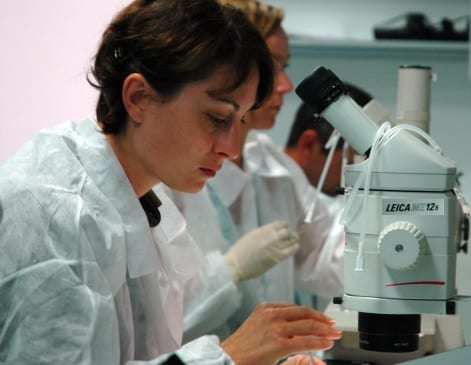Researchers have discovered a nanowire-based material that will allow for hundreds of thousands of recharges.
Scientists in California have now come up with a type of smartphone battery technology material that uses nanowires and that can be recharged hundreds of thousands of times before wearing out.
This opens up the potential for new computer and mobile device batteries that could last a lifetime.
In fact, while many consumers would be able to benefit from this discovery as a smartphone battery technology, the fact is that it may also have applications in larger computers, vehicles, appliances and even spacecraft. The power sources could be recharged as many times as needed throughout a user’s lifetime without ever needing to be replaced.
Comparatively, the commercial lithium-ion batteries that are used most commonly at the moment have an average lifespan of between 300 and 500 recharging cycles before they need to be replaced because their filaments become brittle enough to start cracking.
The researchers came up with this smartphone battery technology by using a special coating on gold nanowires.
 The researchers from the University of California, Irvine (UCI) coated gold nanowires in a shell of manganese dioxide and then encased that into a gel. By doing this, the tech could be used in batteries for gadgets that would last far longer than anything that is currently used. This would be revolutionary for many devices used as a regular part of the average daily life such as in batteries for mobile devices, which continually need recharging. The current batteries are notorious for failing well before the device itself has lived out its full lifespan.
The researchers from the University of California, Irvine (UCI) coated gold nanowires in a shell of manganese dioxide and then encased that into a gel. By doing this, the tech could be used in batteries for gadgets that would last far longer than anything that is currently used. This would be revolutionary for many devices used as a regular part of the average daily life such as in batteries for mobile devices, which continually need recharging. The current batteries are notorious for failing well before the device itself has lived out its full lifespan.
The scientists tested the coated electrode up to 200,000 times over a span of three months and recorded that none of its power or capacity had been reduced in that time. When you translate that into more practical applications, if a smartphone battery was recharged once per day, 200,000 times, then it would take 547 years.
Not only would this have the potential to extend the lifespan of the device itself – as this smartphone battery technology could reduce the instance of mobile device replacement based on a failing battery – but it also has the potential or significant environmental benefits.
